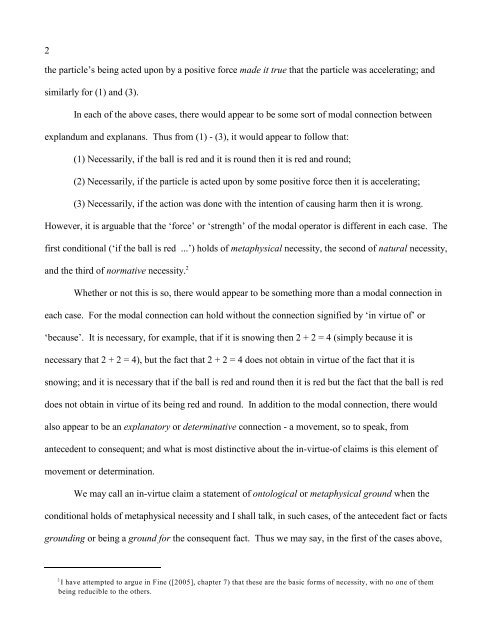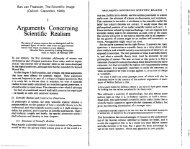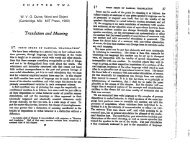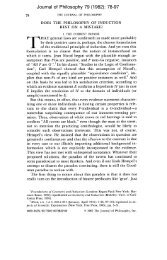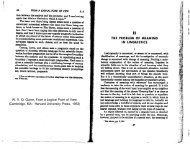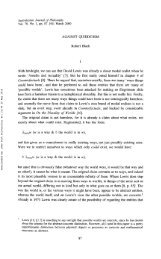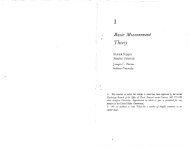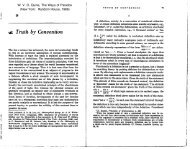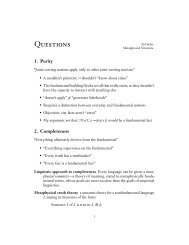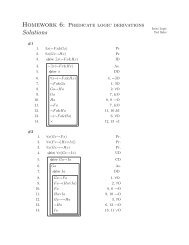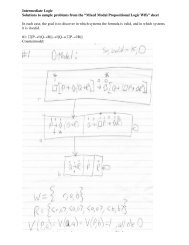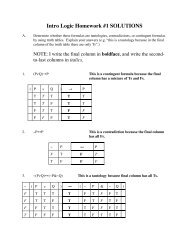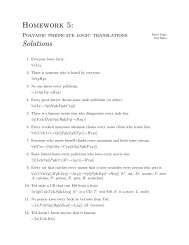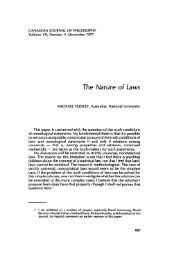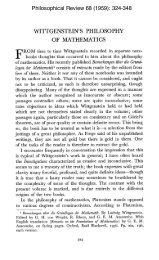Fine - guide to ground.pdf - Ted Sider
Fine - guide to ground.pdf - Ted Sider
Fine - guide to ground.pdf - Ted Sider
Create successful ePaper yourself
Turn your PDF publications into a flip-book with our unique Google optimized e-Paper software.
2<br />
the particle’s being acted upon by a positive force made it true that the particle was accelerating; and<br />
similarly for (1) and (3).<br />
In each of the above cases, there would appear <strong>to</strong> be some sort of modal connection between<br />
explandum and explanans. Thus from (1) - (3), it would appear <strong>to</strong> follow that:<br />
(1) Necessarily, if the ball is red and it is round then it is red and round;<br />
(2) Necessarily, if the particle is acted upon by some positive force then it is accelerating;<br />
(3) Necessarily, if the action was done with the intention of causing harm then it is wrong.<br />
However, it is arguable that the ‘force’ or ‘strength’ of the modal opera<strong>to</strong>r is different in each case. The<br />
first conditional (‘if the ball is red ...’) holds of metaphysical necessity, the second of natural necessity,<br />
2<br />
and the third of normative necessity.<br />
Whether or not this is so, there would appear <strong>to</strong> be something more than a modal connection in<br />
each case. For the modal connection can hold without the connection signified by ‘in virtue of’ or<br />
‘because’. It is necessary, for example, that if it is snowing then 2 + 2 = 4 (simply because it is<br />
necessary that 2 + 2 = 4), but the fact that 2 + 2 = 4 does not obtain in virtue of the fact that it is<br />
snowing; and it is necessary that if the ball is red and round then it is red but the fact that the ball is red<br />
does not obtain in virtue of its being red and round. In addition <strong>to</strong> the modal connection, there would<br />
also appear <strong>to</strong> be an explana<strong>to</strong>ry or determinative connection - a movement, so <strong>to</strong> speak, from<br />
antecedent <strong>to</strong> consequent; and what is most distinctive about the in-virtue-of claims is this element of<br />
movement or determination.<br />
We may call an in-virtue claim a statement of on<strong>to</strong>logical or metaphysical <strong>ground</strong> when the<br />
conditional holds of metaphysical necessity and I shall talk, in such cases, of the antecedent fact or facts<br />
<strong>ground</strong>ing or being a <strong>ground</strong> for the consequent fact. Thus we may say, in the first of the cases above,<br />
I have attempted <strong>to</strong> argue in <strong>Fine</strong> ([2005], chapter 7) that these are the basic forms of necessity, with no one of them<br />
2<br />
being reducible <strong>to</strong> the others.


